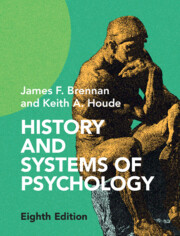

In the previous blog about the emergence of psychology at the expense of the traditional intellectual provinces of the older disciplines of religion and philosophy, one important question centers on two sources of truth. Is there an equivalence between knowledge derived from faith and knowledge derived from methods based on observation?
The innovations and inventiveness of the European Renaissance and subsequent Enlightenment met with considerable resistance from the religious institutions of that period. With the hindsight from history, we can probably see that the tension between religion and science may not have been entirely the result of which had the higher creditability: knowledge based on science or knowledge based on faith. Rather, much of that tension came directly from politics – i.e., a matter of societal pressures contending for power.
Furthermore, by making some distinctions, we may perhaps clarify the issue. On the religion side, many adherents believe that a supreme force, and particularly a god, engages with individual people as well as their societies from the point of creation in time and continuing through various epochs of our known history in ways that vary from a more distant involvement to direct oversight.
Their knowledge of this belief is derived from sacred writings and various revelations over the course of history, so that such belief systems are based upon faith without reliance on an external standard, separately verifiable, like science. Further, for many believers, their social expression of faith is bound up in the major and minor religious organizations that have appeared over the ages, many of which are sustained to the present.
But at the same time, also a product of the intellectual forces that supported the emergence of modern psychology, there are alternative approaches to the study of a supreme being, or god, using our rational abilities, just as in the study of other disciplines that rely on the logical tools of philosophy and are subject to some objectively-based standards.
This field is formally labelled theology, which may overlap to various extents with religion, but its openness to other inputs distinguishes it from the field of religion based solely on faith. In this approach, we might include those who seek knowledge of god by means of cross-cultural comparisons, linguistic and textual analyses of writers about god, archeological evidence, as well as scholars in philosophy, psychology, and sociology, who recognize that individual people do have a spiritual dimension to their experience.

History and Systems of Psychology, Eighth edition
James F. Brennan & Keith A. Houde
Read Does Psychology Crowd Out Its Antecedents? Blog #1 in the Psychology and its Antecedents series
Read Men, Masculinity, & Psychology Blog #3
Read Psychology’s Voice in Environmental Advocacy Blog #4
Read 2023 Retrospect: Emotions and Politics Blog #5
Latest Comments
Have your say!